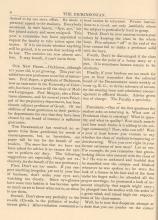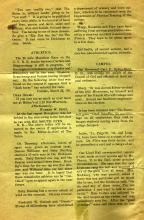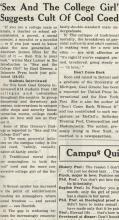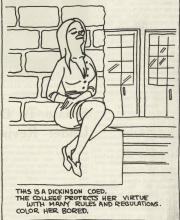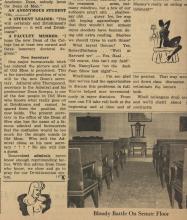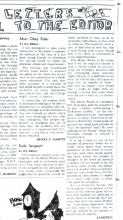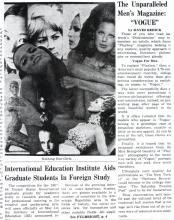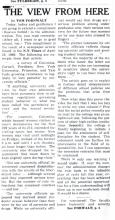Professors are Advised Not to Spend Too Much Time with New Female Students in 1884
The first mention of coeducation in the Dickinsonian appeared in October of 1884. The male editors of the Dickinsonian advised male faculty to not, "show any partiality to the co-eds. (Co-eds. in the parlance of to-day means girls) After-recitation communications cannot be tolerated. Private instructions to a co-ed are only justifiable where the subject is particularly hard to grasp."

